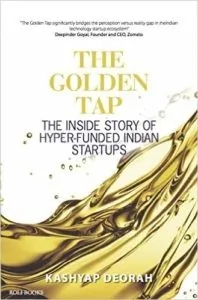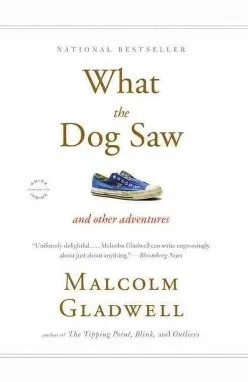My resolve of reading #52booksin2016 and what it gave me
2017 is nearing, and it’s time to reflect on the resolutions of the year gone by. Here, I take stock of my 2016 resolution to read 52 books in the year and what I’ve learned from it.
2016 has been a great year, with a lot of ups and downs. The Testament got itself a new office and grew beyond calculations, my short story and business articles were well received, and one of the seven music videos I shared this year went viral, with Anupam Kher et al tweeting in support. Of course, there were moments where I felt tired and frustrated, but it's alright. I am thankful.

This year started with my resolution of reading 52 non-fiction books (many thanks to Bill Gates for the inspiration), and this article is about the entire experience of setting the goal and moving towards it. I've always been very much into reading and writing, but this challenge proved to be hard because of four reasons: Inadequate time management, my filter on the books to be considered for reading, lack of good recommendations, and the fact that I had started the "hashtagged countdown" on social media, leaving no scope for turning back and living a respectable life in case I fell far behind. As written in Daniel Kahneman’s Thinking Fast and Slow, you perform better when somebody's watching. In this case, I was getting messages from people asking for recommendations and saying that my going ahead with this resolution was inspiring. People were certainly watching.
So, did I read #52books2016? No, only 32 (plus a few works of fiction, which can't be counted). What did I learn? Here it is:
- Aim for the stars and you'll reach the sky
I was sure that reading a non-fiction book every week would be difficult for me. I work at The Testament with 12 hour workdays, play and teach music during the weekends and love writing and cinema. Besides, I need to read business dailies as a prerequisite. How do I make time? I knew the constraints and was sure that it would be very hard, but was equally sure of what's written in the bullet. We're better off with goals beyond our reach. Even if we don't get there, we get quite far.
- Reading makes you a true leader
I am amongst the leaders in The Testament, and the only way I can sustain a leadership position is by being at a higher knowledge potential. We can't be leaders because we're older, or because we're amongst the guys who started the company. We stay as leaders by making the best decisions with the broadest perspectives, while helping everyone around us grow faster. Whenever we get to the table to discuss critical aspects, it's clear that we're not people, but perspectives. The most evolved perspective leads the table, and the company. To have a better perspective, you need knowledge. And there’s no better way to acquire knowledge than by reading books (no, articles don’t do it).
- Reading helps you connect with people
I'm an awkward introvert. Strangely, I'm also the only sales guy in my company, which means I network to earn a living. I don't look like John Travolta, and most people don't care about my existence at networking events (thankfully, times are changing), but I need to go out there and strike up conversations with people without any context. In this process, I've literally been treated like a carpet several times; and you can imagine how bad it can get for the self-esteem of an “awkward introvert”. You know what came to my rescue in the journey? Books. It may sound bizarre, but it really works. I've established a lot of critical connections by using books as my networking tool. For instance:
Hi ____. I watched your speech and really liked how you connected your company's journey to the Flywheel effect. Good to Great is one of my favourites. Can you tell me how...
or
Hi ___. I was paying attention to what you were saying about competitive advantage and could immediately relate it to what I read in David and Goliath. Any chance you like Gladwell too?
We must realise that extensive reading is a habit most associated with people whom we consider really successful (Paul Allen, Jeff Bezos, et al). Books bring us on their page and help us strike up intelligent and important conversations. I can tell you that I'm way better than I was 20 books ago. There’s a lot of difference.
- Reading makes you better at relationships
This is true, and not just for professional relationships. I've been very lucky to have stumbled upon some really nice biographies and books on psychology, philosophy, behavioural economics and culture. All of these works have helped me take my understanding of people far beyond my personal experience (which isn’t much to begin with). And as they say, it’s always better to learn from others’ mistakes. Books give us an opportunity to do just that. This works on all levels.

Overall, it's clear that reading is a good way to spend time. Following the requests, here are my strong recommendations based on the books I read in 2016:
- The Golden Tap by Kashyap Deorah
It was my first book of 2016, and the start couldn't have been better. This is an essential piece for anyone who wants to understand the Indian entrepreneurial ecosystem from the ground up. Narrated across generations, this work beautifully projects the entrepreneurial spirit of this country from an insider’s perspective. Terrific book all the way!

- Idea Man by Paul Allen
Paul Allen, the co-founder of Microsoft, wrote Idea Man when he was fighting Stage-4 cancer. This book is a true gift for everyone who appreciates technology, entrepreneurship and the struggle for greatness. Read this, and you’ll know how Microsoft became the biggest tech company in the world without raising funds. Also, you’ll be left inspired and emotional.

- Only the Paranoid Survive by Andy Grove
This is one of the most impactful and revelatory books on management, by perhaps the most respected leader in tech history (Andy Grove - ex-CEO, Intel). If you want to be an expert of “what will be” instead of “what was”, you must read this book. It epitomises great vision.

- What the Dog Saw by Malcolm Gladwell
You need to read everything by Malcolm Gladwell, especially this one. Why? Because questions are always more important than answers. In this book, Gladwell (the Albert Einstein of Social Science, in my opinion) asks crazy questions about why and how the world works, and shares great answers. Behavioural economics, business, politics and psychology; this is Malcolm Gladwell spilling magic and making you smarter.

- Zero to One by Peter Theil
- Start with Why by Simon Sinek
- Predictable Success by Les Mckeown
- The Hard Things about Hard Things by Ben Horowitz
- The Wisdom of Crowds by James Surowiecki
- Mastering the VC Game by Jeffrey Bussgang
- Predictably Irrational by Dan Ariely
- Only the Paranoid will Survive by Andy Grove
- The Power of Habit by Charles Duhigg
- The Everything Store by Brad Stone
- Rich Dad Poor Dad by Robert Kiyosaki
- Financial Intelligence by Karen Berman and Phil Knight
- Drive by Daniel H. Pink
Special Mention: Rashmirathi by Ramdhari Singh Dinkar. It’s an inexplicably beautiful work, which chronicles the journey of an unlikely hero who fights against all odds – Karna from the Mahabharatha. There’s no way you can miss it.

What’s your resolution for 2017? Stay tuned! Cheers!
(Disclaimer: The views and opinions expressed in this article are those of the author and do not necessarily reflect the views of YourStory.)







